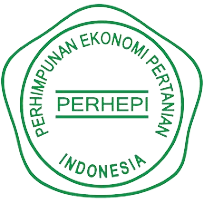Risk Analysis of The Raw Tofu Production Process with The FMEA Method at The Saudara Jaya Factory in Jember Regency
DOI:
10.25047/jmaa.v4i2.104Downloads
Abstract
This study analyses the risk of tofu production at the Saudara Jaya Tofu Factory using the Failure Mode and Effect Analysis (FMEA) method with the aim of identifying potential failures and calculating the Risk Priority Number (RPN) value based on severity, frequency of occurrence, and detection. The results of the study found 17 risks in the tofu production process with 5 highest priority risks, namely the mixing of good and bad quality soya beans, improper dosage of vinegar, negligence in managing soaking time, inappropriate tofu size, and less dense tofu. To minimise these risks, several mitigation measures are proposed, including the selection of quality raw material suppliers, the use of soybean sorting machines, the creation of written SOPs, the use of timers for soaking, and the replacement of cutting tools and presses with more efficient ones. The implementation of these mitigations is expected to improve the quality and efficiency of tofu production as well as customer satisfaction.
Keywords:
FMEA method tofu production risk analysis Risk Priority Number (RPN)References
[1] G. Setyawan and S. Huda, “Analisis pengaruh produksi kedelai, konsumsi kedelai, pendapatan per kapita, dan kurs terhadap impor kedelai di Indonesia,” Kinerja J. Ekon. dan Manaj., vol. 19, no. 2, 2022.
[2] D. P. dan P. K. Jember, “Data Penyebaran Agroindustri Tahu Kabupaten Jember,” Jember, 2010.
[3] E. S. Rahayu, F. Maharani, and Indah, TEKNOLOGI proses produksi tahu. Yogyakarta: Kanisius, 2012.
[4] N. Ariani, M. Safutri, and S. Musiam, “Analisis Kualitatif Formalin Pada Tahu Mentah Yang Dijual Di Pasar Kalindo, Teluk Tiram Dan Telawang Banjarmasin,” J. Ilm. Manuntung, vol. 2, no. 1, 2016.
[5] N. S. Mahardika, “Identifikasi Potensi Bahaya pada Proses Produksi di Pabrik Gula Pradjekan Kabupaten Bondowoso,” J. Manaj. Agribisnis dan Agroindustri2, vol. 2, no. 2, pp. 96–108, 2022, doi: 10.25047/jmaa.v2i2.58.
[6] Sugiyono, Statistics for Research. Bandung: Alphabetta, 2017.
[7] A. D. Aryani, Wahyuda, and S. Gunawan, “Analysis and determination of tofu production risk mitigation strategy using FMEA and AHP methods (Case study: UD XYZ),” J. Sains dan Teknol., vol. 18, no. 1, 2022, doi: http://dx.doi.org/10.36055/tjst.v18i1.13809.
[8] S. Nurfadillah, K. Budiraharjo, and W. Roessali, “Prioritas Dan Strategi Penanganan Risiko Produksi Pada Industri Tahu Di Kabupaten Grobogan,” J. Ilmu-Ilmu Pertan., vol. 22, no. 1, 2020, doi: https://doi.org/10.30595/agritech.v22i1.7504.
[9] J. P. Irawan, I. Santoso, and S. A. Mustaniroh, “Model Analisis dan Strategi Mitigasi Risiko Produksi Keripik Tempe,” Ind. J. Teknol. dan Manaj. Agroindustri, vol. 6, no. 2, 2017, [Online]. Available: https://industria.ub.ac.id/index.php/industri/article/view/198/0
[10] H. Aulawi, W. A. Kurniawan, and Sopian, “Analisis Risiko Kegagalan Proses Produksi Dodol Menggunakan Metode FTA, FMEA dan AHP,” J. Kalibr., vol. 20, no. 2, 2022, doi: https://doi.org/10.33364/kalibrasi/v.20-2.1154.
[11] M. F. Sufa and U. Khoiriyah, “Manajemen Risiko Proses Produksi Gula Denganmetode Failure Mode Effect And Analysis,” PERFORMA Media Ilm. Tek. Ind., vol. 16, no. 1, 2017, doi: https://doi.org/10.20961/performa.16.1.12756.
License
Copyright (c) 2024 Sindi Putri Sahari, Dhanang Eka Putra

This work is licensed under a Creative Commons Attribution 4.0 International License.
You are free to:
- Share — copy and redistribute the material in any medium or format for any purpose, even commercially.
- Adapt — remix, transform, and build upon the material for any purpose, even commercially.
The licensor cannot revoke these freedoms as long as you follow the license terms.
Under the following terms:
- Attribution — You must give appropriate credit, provide a link to the license, and indicate if changes were made. You may do so in any reasonable manner, but not in any way that suggests the licensor endorses you or your use.
- No additional restrictions — You may not apply legal terms or technological measures that legally restrict others from doing anything the license permits.
Notices:
You do not have to comply with the license for elements of the material in the public domain or where your use is permitted by an applicable exception or limitation.
No warranties are given. The license may not give you all of the permissions necessary for your intended use. For example, other rights such as publicity, privacy, or moral rights may limit how you use the material.





